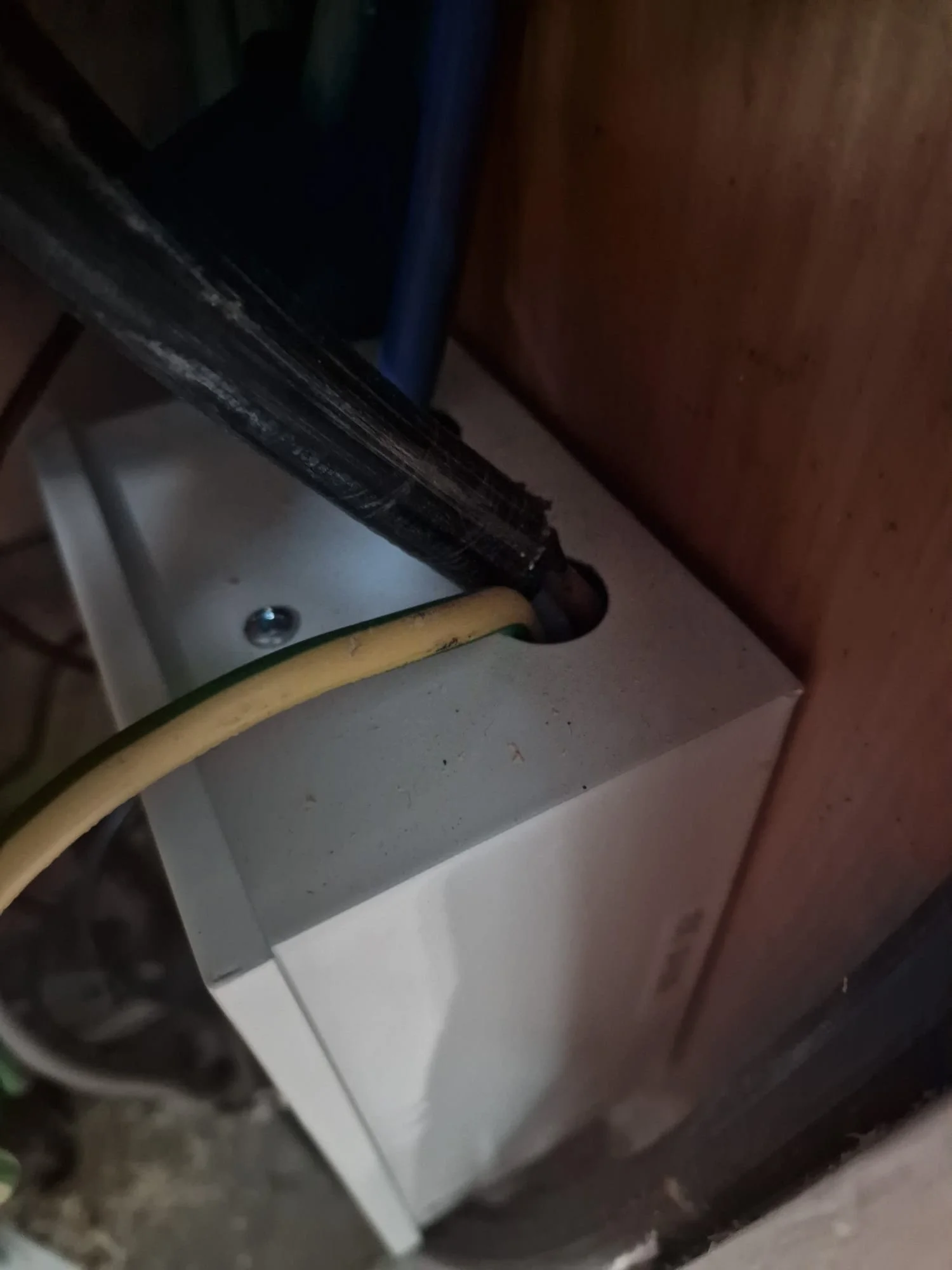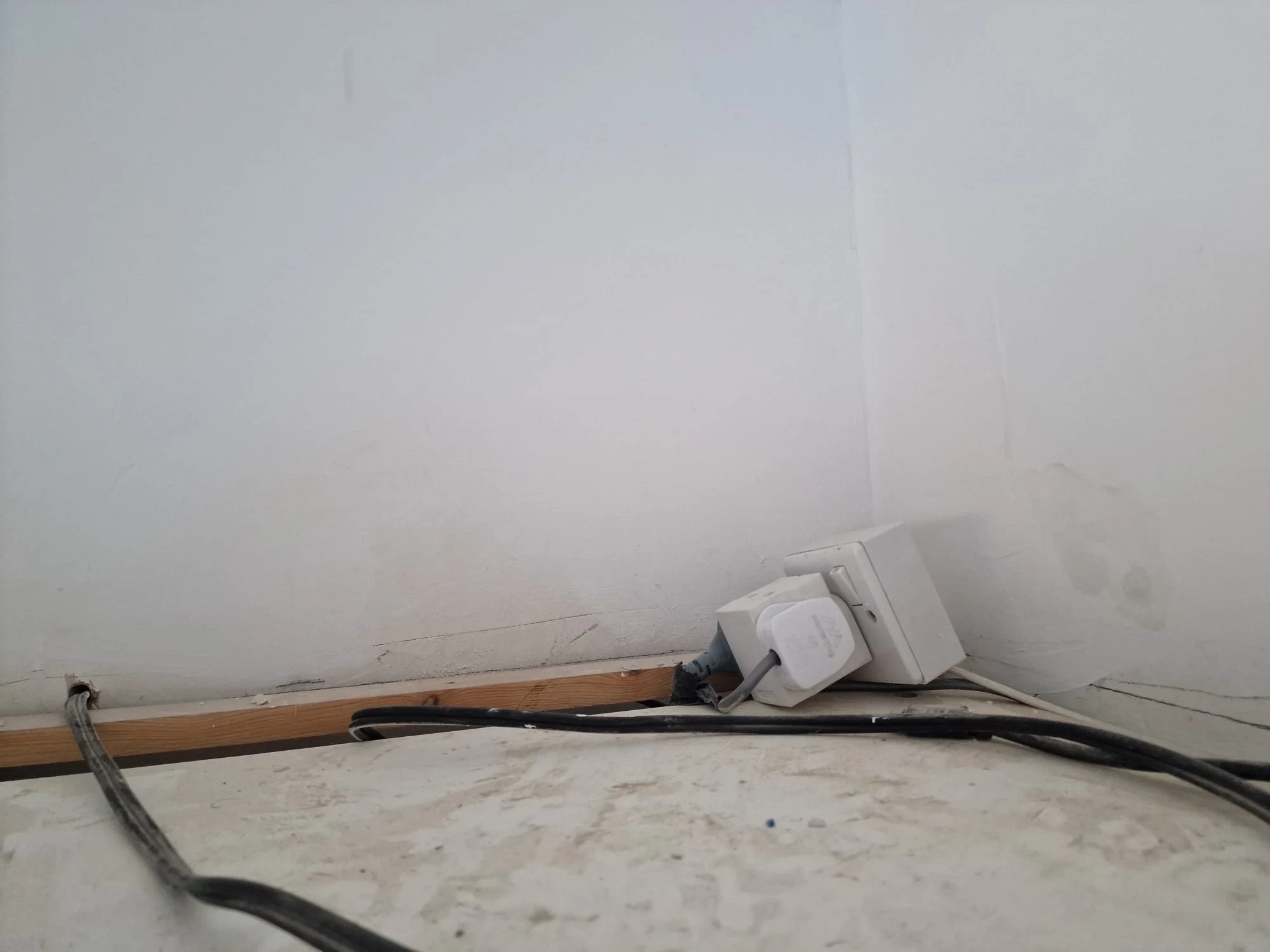⚡️ The Hidden Dangers of Builder-Done Electrical Work: Why Your Extension Could Be a Fire Hazard
You've poured tens of thousands into your dream home extension. The architect signed off, the builder finished the last coat of paint, and your new kitchen gleams under perfect downlights. But six months later, the dream turns into a nightmare: nothing works. The consumer unit trips relentlessly, lights flicker like a strobe show, and the breakers are dangerously hot.
This isn't a rare fault; it's a common, catastrophic reality when unqualified personnel handle sensitive electrical installations. Here at Dan Electrician, your trusted Liverpool Electrician (Call 07400238767), we've seen these failures firsthand. We recently encountered two shocking cases—in Crosby and Formby—that illustrate the devastating financial and safety risks of bypassing a fully qualified, registered electrician.
In this comprehensive guide, we'll uncover the hidden dangers of builder-done electrical work, provide a step-by-step guide to spotting and fixing bad wiring, and give you the essential knowledge to keep your family and home safe from preventable electrical fires.
The Case Studies: When a "Saving" Costs You Everything
The temptation is high: let the builder’s team handle the wiring to "streamline" the project. But as our clients in Crosby and Formby discovered, this decision can cost more than the original installation.
Case 1: Crosby's £55k Extension Disaster
A client in Crosby invested £55,000 in a major kitchen extension designed by an architect. The builder's team completed the wiring and power points, planning to have a 'friend'—who they claimed was an electrician—simply issue the Electrical Installation Certificate afterwards. Six months post-completion, the system failed spectacularly:
Symptoms: Consumer unit tripping, sockets failing, lights flashing, and hot, stressed circuit breakers.
The Shocking Discovery: The builder had connected all sockets, the oven, and the microwave—high-demand appliances—to a single 40A MCB (Miniature Circuit Breaker). Worse, they used a single 2.5mm conductor for this entire circuit.
The Danger: A 2.5mm cable is typically rated for a maximum of 20A or maybe 25A, depending on installation methods, but is nowhere near safe for a 40A breaker. The cable overheated, posing an extreme fire risk.
The Cost to Fix: The entire electrical system in the new extension required stripping and replacement. Estimated cost: £3,000 plus re-decoration costs, essentially doubling the electrical budget and causing immense stress.
Case 2: The Formby Family's £700 EV Charger Loss
An identical situation in Formby led to a family not only losing the use of their new extension but also the failure of their brand-new EV charger.
The Problem: Unqualified wiring necessitated a full consumer unit replacement and damaged a £700 EV charger circuit.
The Cost to Fix: Estimated electrical work and parts to safely re-wire and replace the damaged charger: £2,800.
These hard-working families paid the architect and the Manchester Builder company for a finished, but were left with unsafe, non-functioning, and uninsurable electrical systems. Always insist on seeing the credentials of the specific electrician who will be doing the work, and always ask about the certificate.
Step-by-Step Guide: Identifying and Solving Frequent Electrical Issues
You don't need to be an electrician, but knowing these common red flags can prevent disaster.
Issue: Immediately circuit Breaker Trips (MCB or RCD). Overload: Too many appliances on one circuit (Crosby Case).
Short Circuit Earth Fault: Damaged wiring insulation (possible fire risk). Unplug all appliances on that circuit. Reset the breaker. If it trips immediately, Call Dan Electrician (07400238767), Hot Sockets or Switches, Loose Connections: High resistance generates heat (a major cause of fires).
Overloading: Appliance draw exceeds the socket rating. Turn off the power at the main switch. Do not use that socket. Call a professional electrician
Flickering or Dimming Lights: Loose Wiring, Faulty Bulb: In the circuit or consumer unit.
General Overload: System struggling to cope. Change the bulb first. If flickering persists, the fault is likely in the wiring. Get an Electrical Inspection.
Buzzing, Cracking, and Arcing: Electricity jumping a gap due to a loose connection. This is an imminent fire risk. Turn off the power to the circuit (or the whole house). Get an Emergency Electrician fast.
Searching for a Local Electrician Liverpool or Emergency Electrician Formby should lead you to certified experts like Dan Electrician.
Tackling Common Misconceptions About Electricity and Safety
Many homeowners make assumptions that lead to dangerous cost-cutting.
Misconception 1: "The Builder will get the certificate from an electrician mate later."
The Reality: An electrician can only certify work they have fully designed, installed, or rigorously tested. A genuine, qualified electrician will rarely put their name on dangerous work they didn't complete. If they do, they are risking their own registration. A certificate is only as good as the wiring it covers.
Misconception 2: "Electrical work is just connecting wires; it's easy."
The Reality: Correct wiring requires in-depth knowledge of BS 7671 (The IET Wiring Regulations), cable sizing, insulation types, current-carrying capacity, earthing arrangements, and discrimination (ensuring the right breaker trips). Miscalculations, like the 40A MCB on a 2.5mm cable in Crosby, are lethal errors.
Misconception 3: "If it works, it's safe."
The Reality: Dangerous wiring often works for a period, potentially for months, until a high load (like a new oven or prolonged use) exposes the fatal flaw. Safety is about resilience and protection, not just functionality.
Handling Seasonal and Outdoor Electrical Demands
Your electrical system faces different demands throughout the year. Ensure your wiring is prepared for the extremes.
1. Ensuring Your System Handles Seasonal Demands
Winter: Heating demands are high. Check that your boiler circuits, electric heaters, and immersion heaters are on dedicated, correctly rated circuits. A modern consumer unit replacement may be necessary to handle the load of modern living.
Summer: Air conditioning, garden pumps, and power tools stress the system. Ensure all outdoor electrical systems are RCD protected and weather-rated (IP rated).
2. Guidelines for Safely Wiring Outdoor Structures and EV Chargers
EV Charger Circuit Installation: EV chargers draw significant continuous current. A dedicated circuit is mandatory, often using 6mm or 10mm cable, protected by a specific Type A or RCD/RCBO and installed according to the latest IET Code of Practice for EV Charging Equipment Installation. Do not trust this to a general builder.
Outdoor Structures (Sheds/Garages): Power to an outbuilding must be a dedicated circuit from the main consumer unit, run with suitable armoured cable (SWA) or conduit, and properly terminated. All sockets must be RCD protected.
Recreational Systems (Hot Tubs/Saunas): These are high-load, high-risk items requiring a completely separate, dedicated, and highly protected supply. Consult a specialist electrician.
Essential Electrical Outlets and Appliances in Utility Spaces
A well-designed utility space needs more than just one or two sockets.
Kitchen/Utility: Dedicated circuits are required for all high-current appliances: Oven/Range, Electric Hob, Cooker Hood, Washing Machine, Tumble Dryer, Dishwasher, Microwave, and Fridge/Freezer. Placing these on a builder's overloaded ring circuit is dangerous.
Garage/Workshop: Multiple sockets (minimum 4-6) on an RCD-protected circuit. Ensure you have a Spur for tools like compressors or bench equipment, ensuring you don't use extension leads permanently.
Analysing Electricity Bills: Interpreting Your Usage
A significant, unexplained spike in your electricity bill could be a sign of poor wiring or inefficiency, not just high usage.
High Consumption: If your bill is unexpectedly high, it could indicate faulty or inefficient appliances or, critically, a hidden electrical fault (like an earth leakage) causing wasted power.
Interpreting Tariffs: Look at your kWh usage. If this figure is high, something is drawing too much power. If you suspect an issue, Dan Electrician can perform a load test and insulation resistance test to identify problems that lead to energy waste and unsafe conditions.
Conclusion: Trust the Expert, Protect Your Investment
The two tragic case studies in Crosby and Formby are a stark reminder: cutting corners on electrical work is not a saving; it’s a dangerous and costly gamble.
When planning any extension or renovation, you must insist on a fully registered, qualified electrician who can provide a legally binding, insured Electrical Installation Certificate upon completion.
Protect your family, your home, and your investment. Don't let your dream extension turn into a costly nightmare.
For safe, certified, and compliant electrical installations in Liverpool, Crosby, Formby, and surrounding areas, trust Dan Electrician.
📞 Call Dan Electrician today for a certified and safe installation: 07400238767

